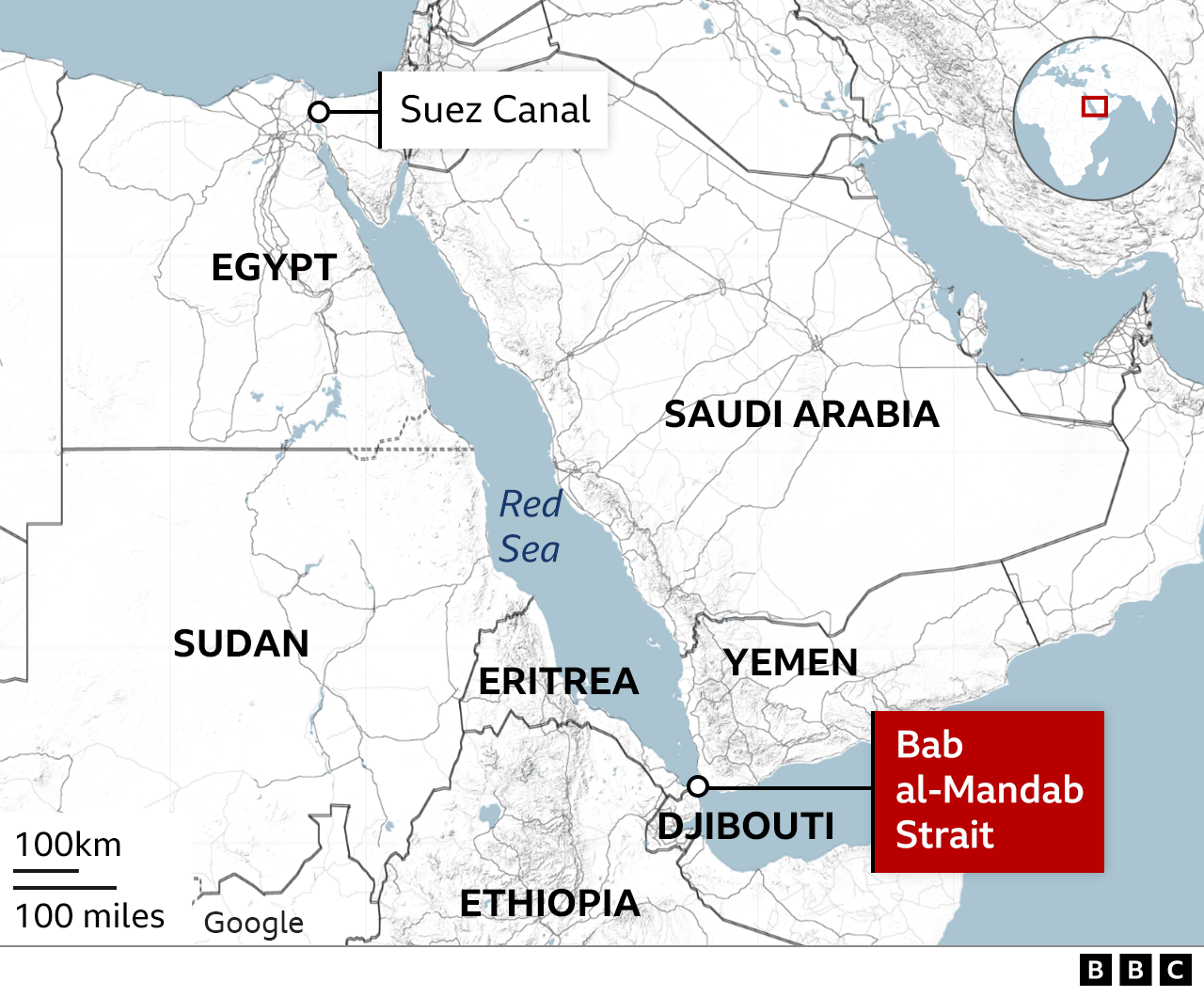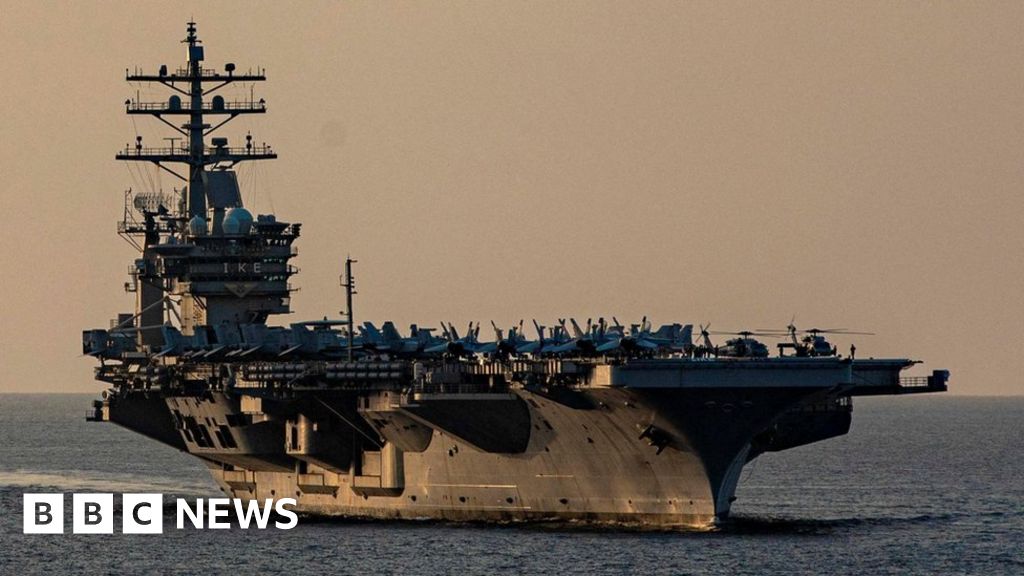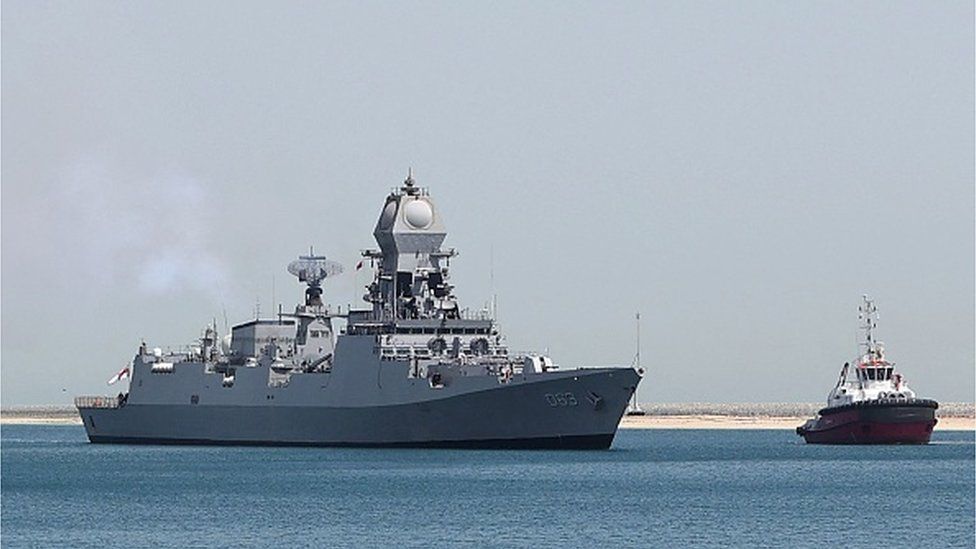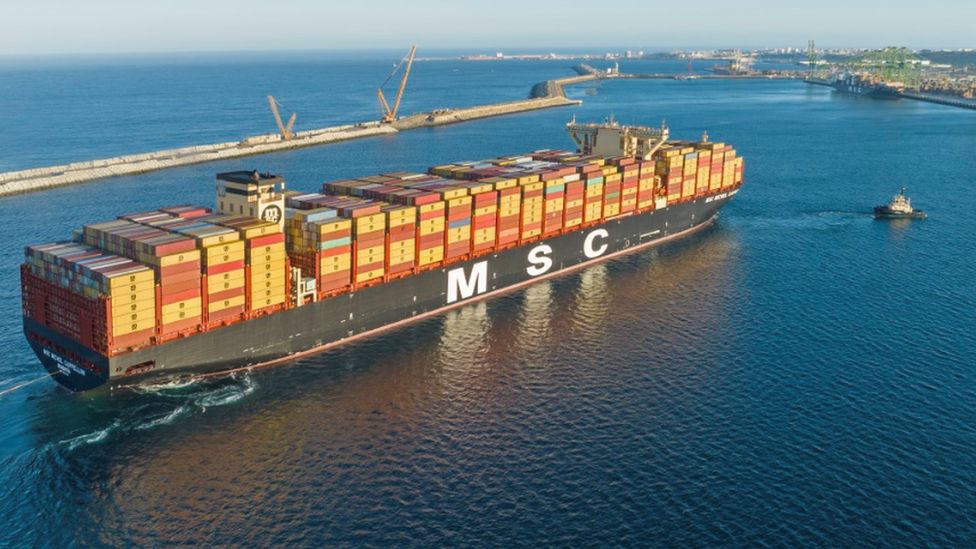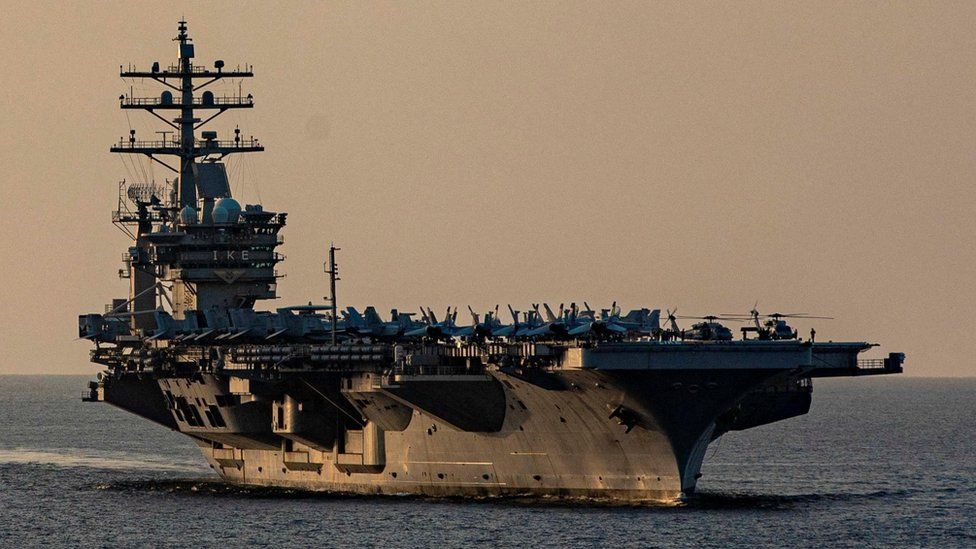
The US Navy has destroyed Houthi “small boats” attempting to board a container ship in the Red Sea.
Four vessels from Houthi-controlled areas in Yemen fired upon the Maersk Hangzhou and got to within metres of the ship, the US military said.
Helicopters from nearby US warships responded to a distress call and after being fired upon, sunk three of them “in self-defence”.
The crews were killed and the fourth boat fled the area.
The Houthis have been attacking ships in the Red Sea since November.
The Iranian-backed Yemeni rebel group have claimed its attacks on the vital shipping lane are directed at vessels linked to Israel, in response to the war in Gaza.
The commercial ship attacked, the Maersk Hangzhou, is registered to Singapore and operated and owned by a Danish firm, US Central Command (Centcom) said.
Maersk, one of the largest shipping companies in the world, says it has paused sailings through the Red Sea for 48 hours.
The four Houthi boats attacked at around 06:30 Yemeni time (03:30 GMT) with mounted weapons and small arms, getting to within 20m (66ft) of the container ship, which the crew “attempted to board”. The ships crew issued a distress call and a security team returned fire, the statement said.
Helicopters from the nearby USS Eisenhower aircraft carrier and USS Gravely destroyer responded to the call for help and were shot at while “in the process of issuing verbal calls to the small boats”.
The helicopters “returned fire in self-defense, sinking three of the four small boats, and killing the crews”, Centcom said. It added that the fourth boat “fled the area” and no damage had been recorded to US personnel or equipment.
It was the second attack on the Maersk Hangzhou in 24 hours, after it was attacked with missiles on Saturday.
The anti-ship missiles were fired from Houthi-controlled areas as the destroyers Gravely and Laboon responded on Saturday, according to a previous Centcom statement.
A US Navy admiral told AP the missile attack was the first successful strike since a global patrol was launched on 18 December.
Centcom said while the ships were responding to the distress call, two anti-ship missiles were fired from Houthi-controlled areas at the pair of US navy vessels.
The USS Gravely destroyed the inbound ballistic missiles, Centcom said, adding it was the twenty-third “illegal attack by the Houthis on international shipping” since 19 November.
Centcom added the Maersk Hangzhou is “reportedly seaworthy and there are no reported injuries” on board.
Separately, the United Kingdom Maritime Trade Operations (UKMTO) organisation reported an incident in the Red Sea about 55 nautical miles (101km) to the south-west of the Yemeni port of Hodeidah.
In a statement, the organisation said an unidentified ship had reported “a loud bang accompanied by a flash on the port bow of the vessel” and several explosions.
No damage was recorded and all members of the crew were reported unhurt, with the vessel escaping the area to a nearby port, the statement said.
The rise in Houthi attacks over several weeks has led many shipping firms, including Maersk, to divert their vessels away from the Red Sea, travelling around the horn of Africa instead.
To reach the Suez Canal in Egypt – which connects to the Mediterranean Sea – ships must pass through the tiny Bab al-Mandab Strait, just off the coast of Houthi-controlled areas in Yemen.
The Tehran-sponsored rebels have previously claimed to only target “Israel-linked” commercial ships in response to the war in Gaza, saying the attacks are an attempt to stop Israeli attacks on Palestinians.
This video can not be played
To play this video you need to enable JavaScript in your browser.
In response, the US launched Operation Prosperity Guardian – an international coalition to safeguard shipping in the the region.
In an interview with the Associated Press, US Navy Vice Admiral Brad Cooper said the Houthis do not seem to be ending their “reckless” attacks in light of the maritime taskforce.
He added that 1,200 commercial ships have passed through the Red Sea since the operation was launched, with none hit by drone or missile strikes until Saturday.
Maersk said last week that it was preparing to resume journeys through Red Sea – after diverting to the much longer route around the Cape of Good Hope because of recent Houthi attacks on shipping.
Sunday’s attacks have led to another 48 hour pause.
The Red Sea is one of the world’s most important shipping lanes as it links markets in Europe with Asia.
Analysts have warned the attacks could see a rise in prices, as it is also one of the most important routes for oil and liquefied natural gas shipments produced in the Middle East.
